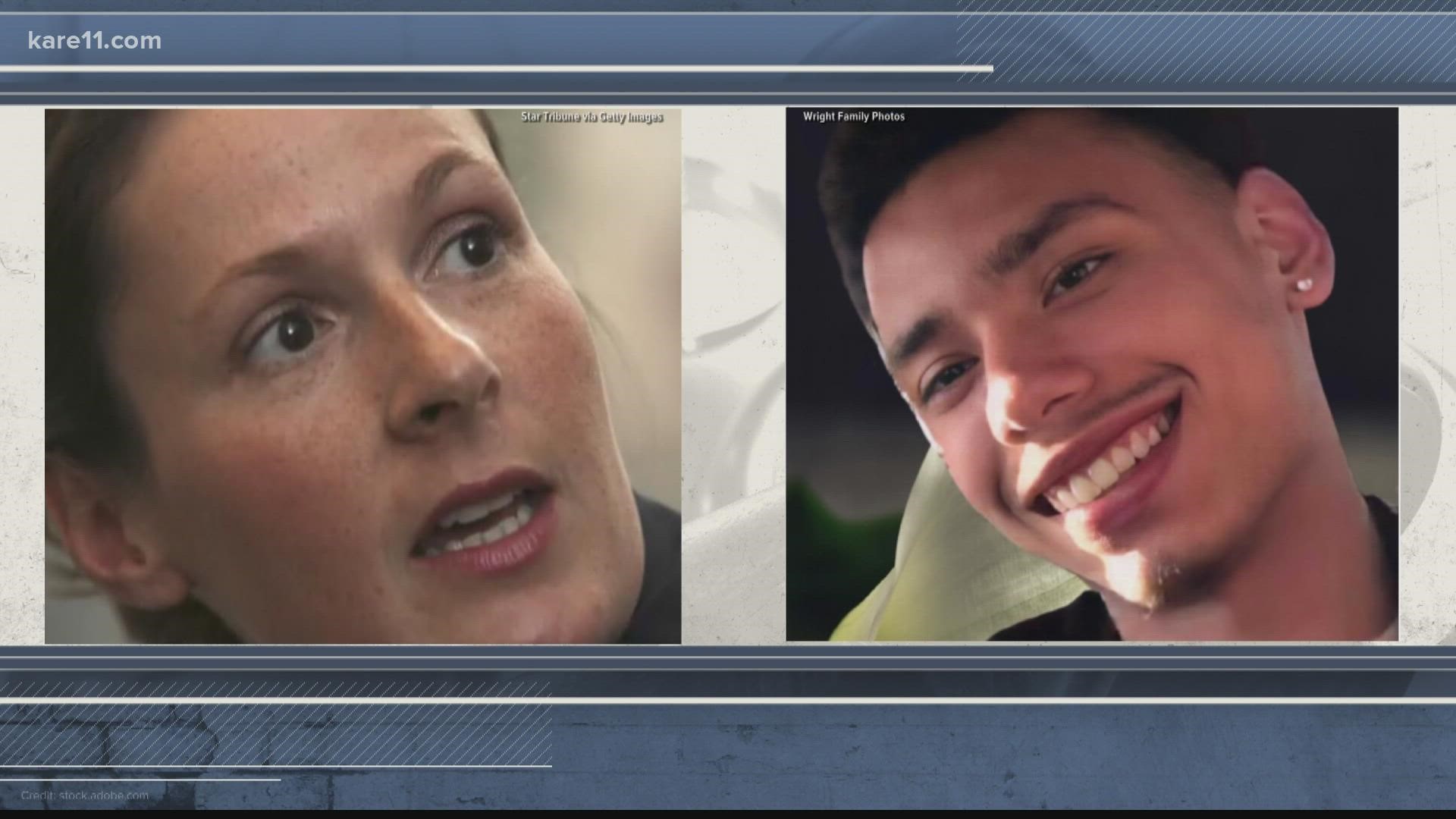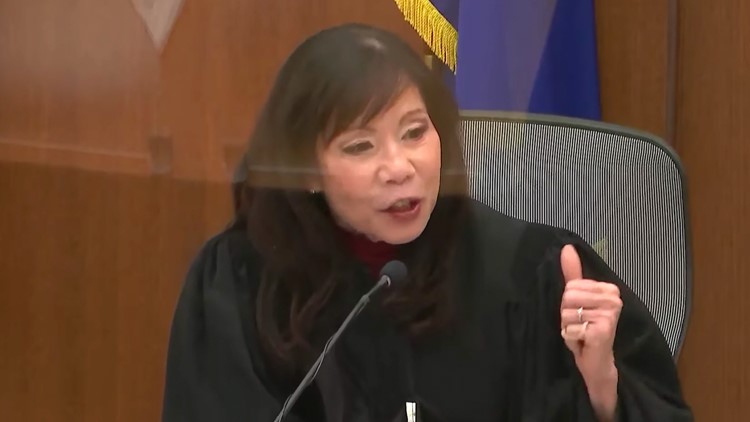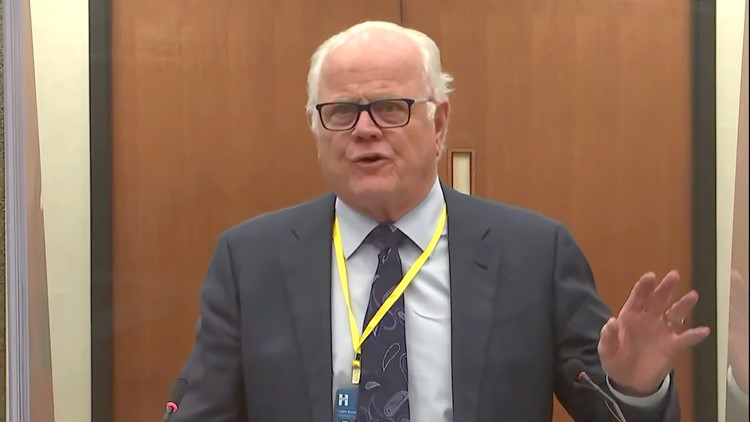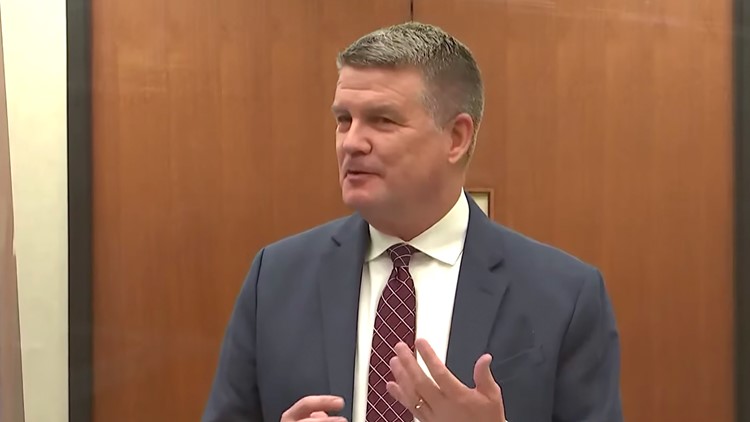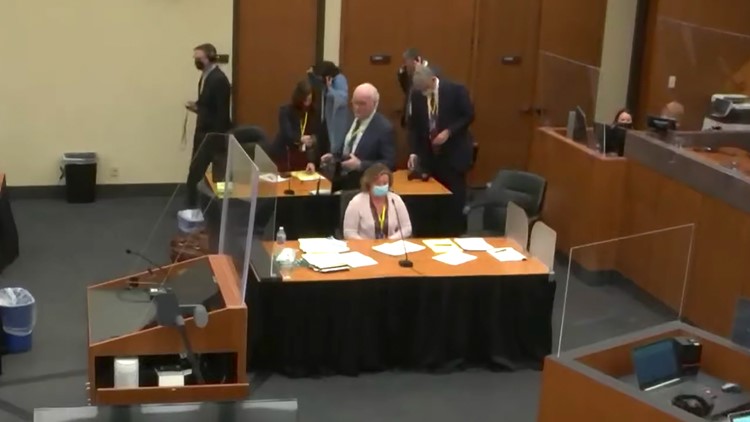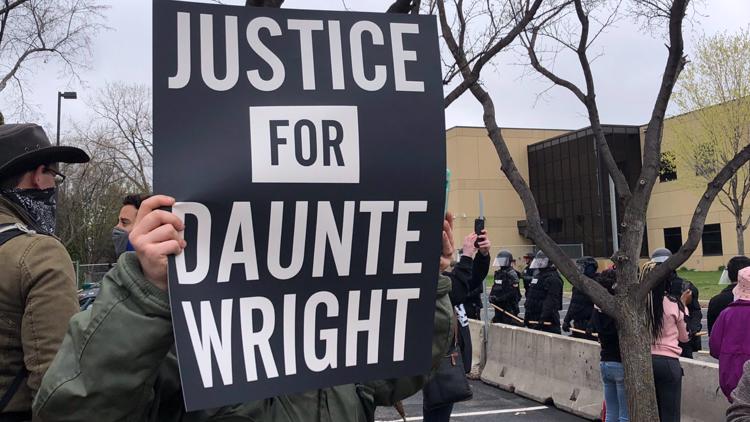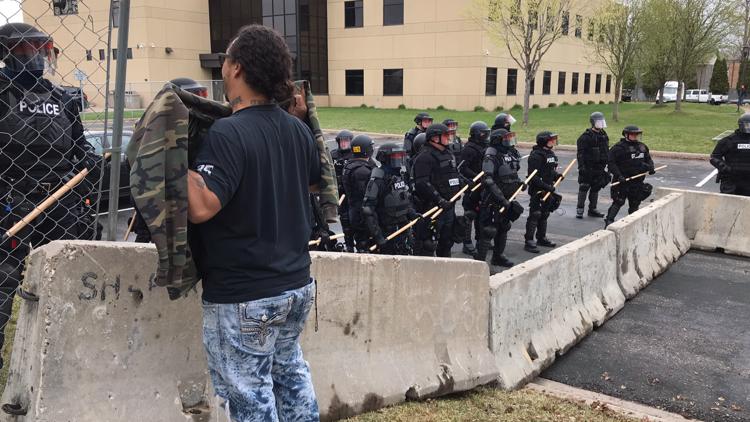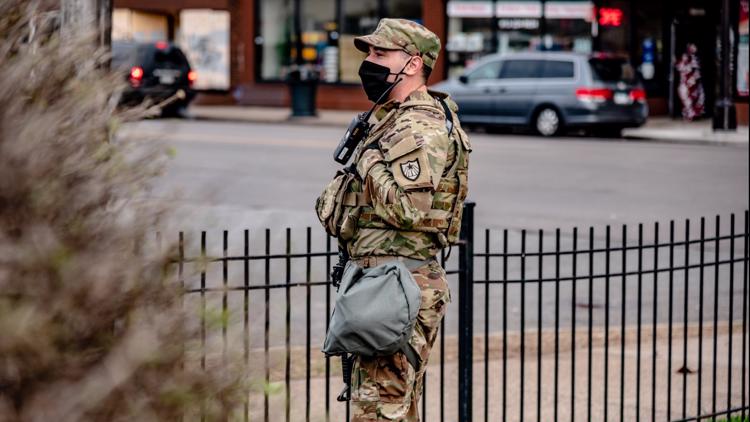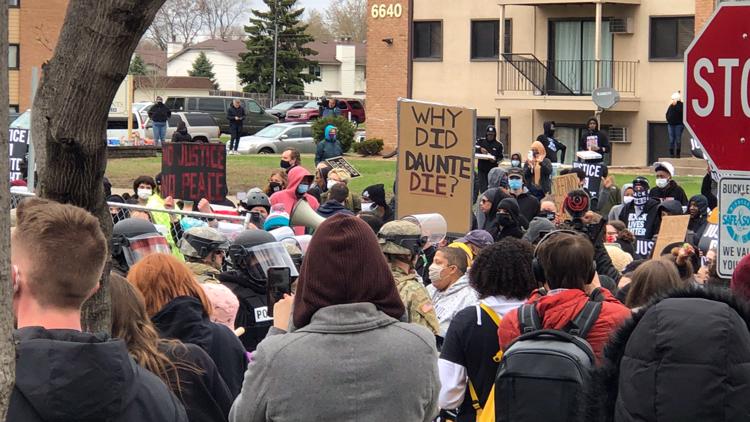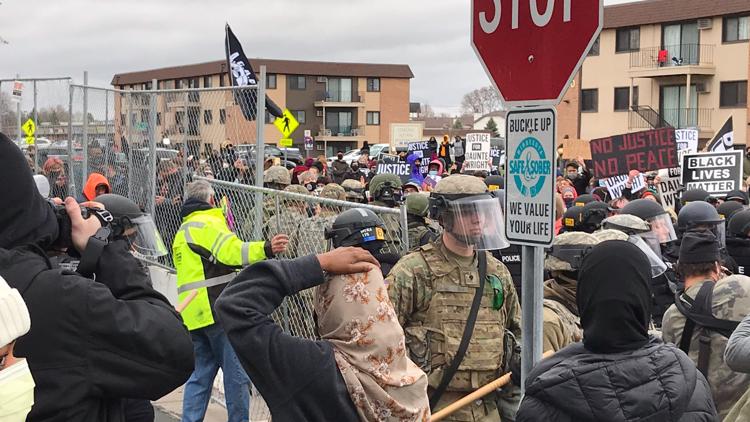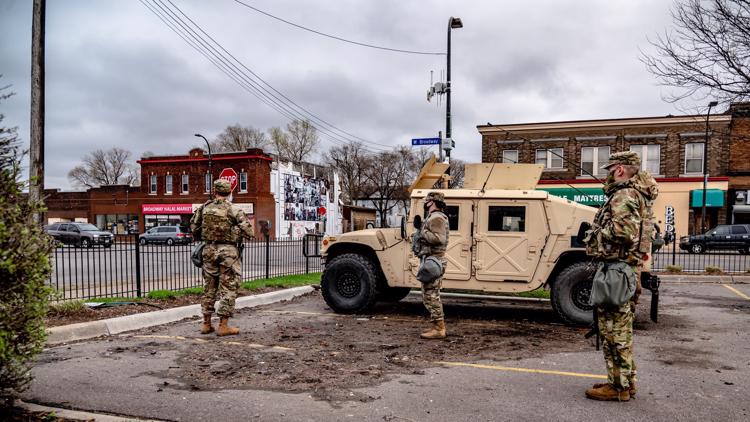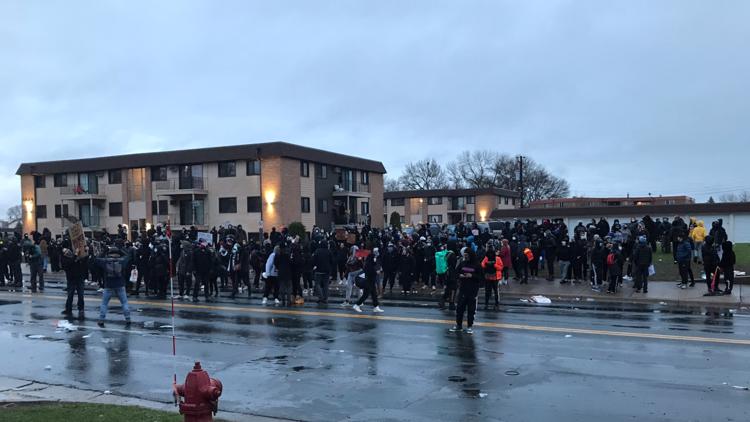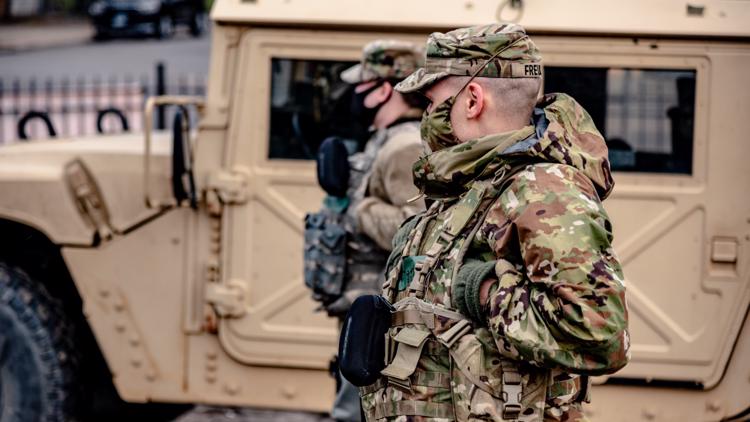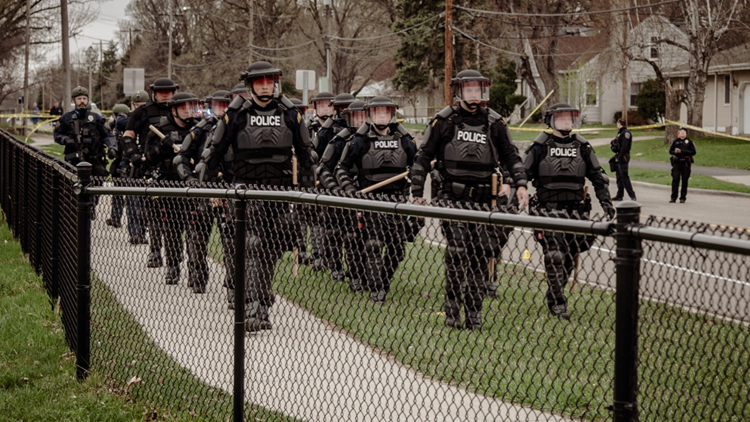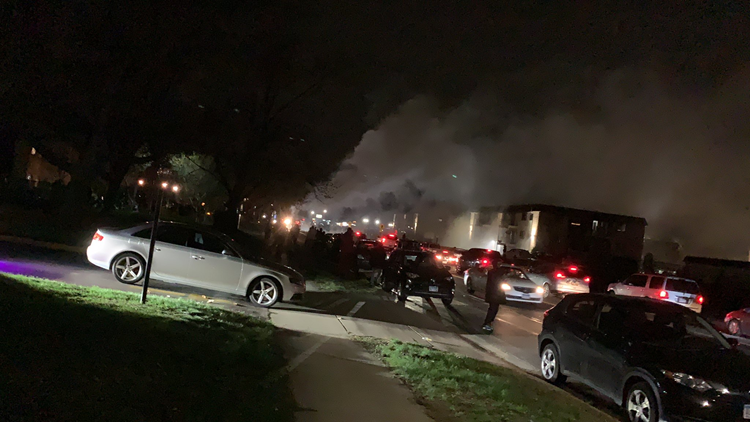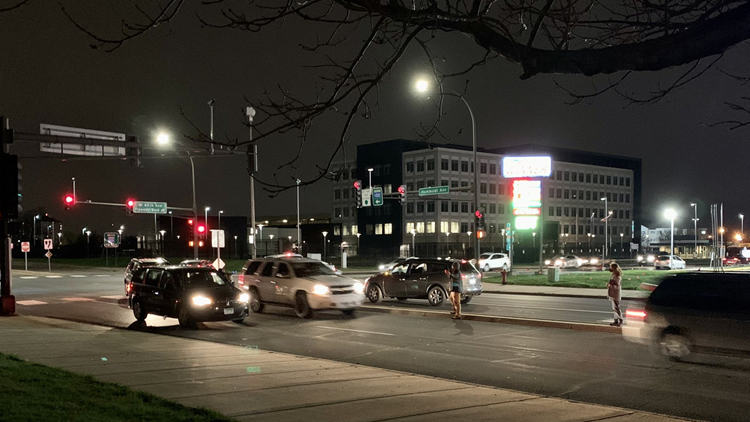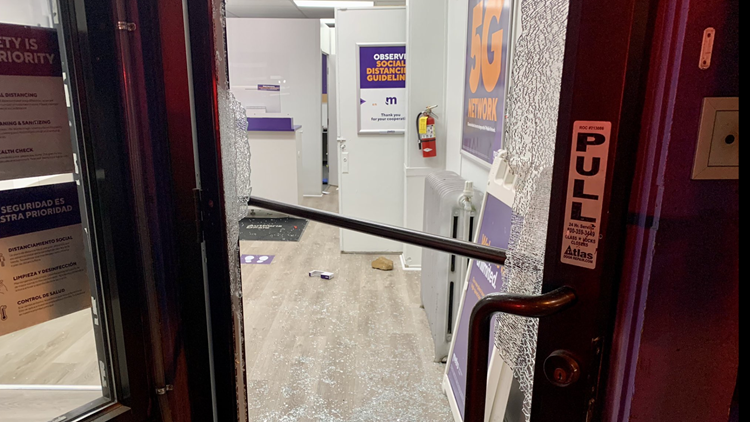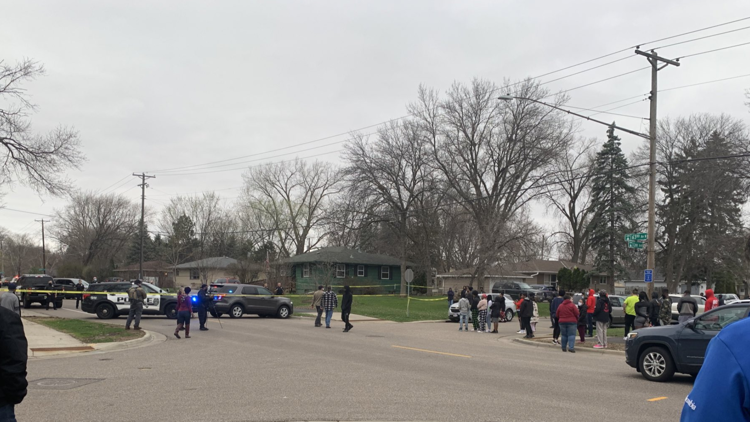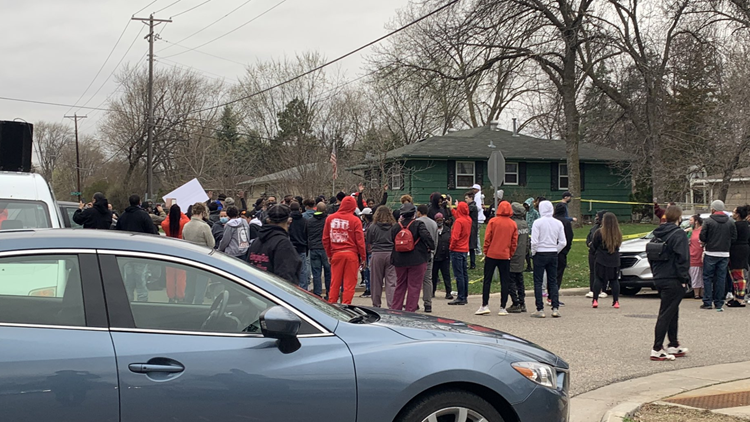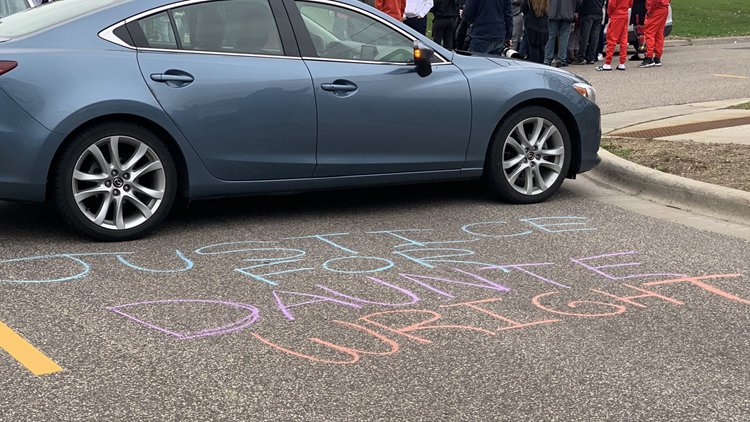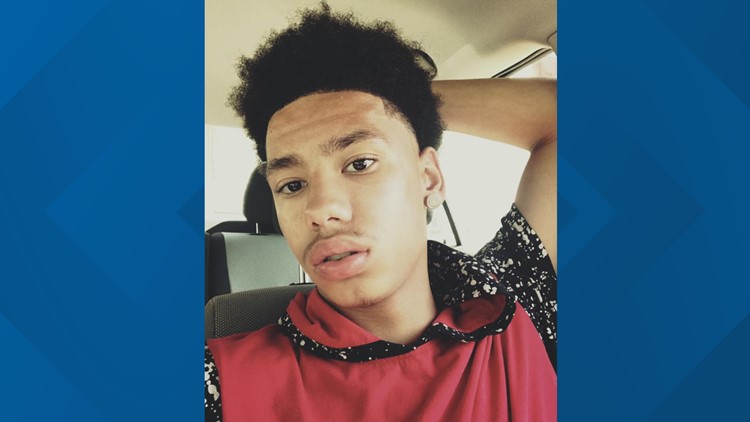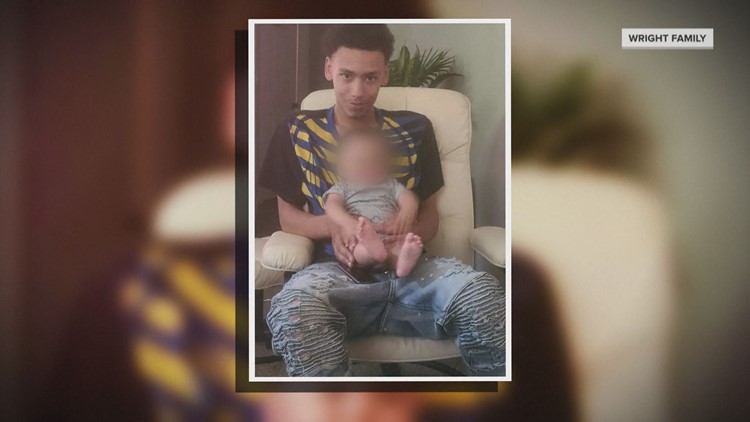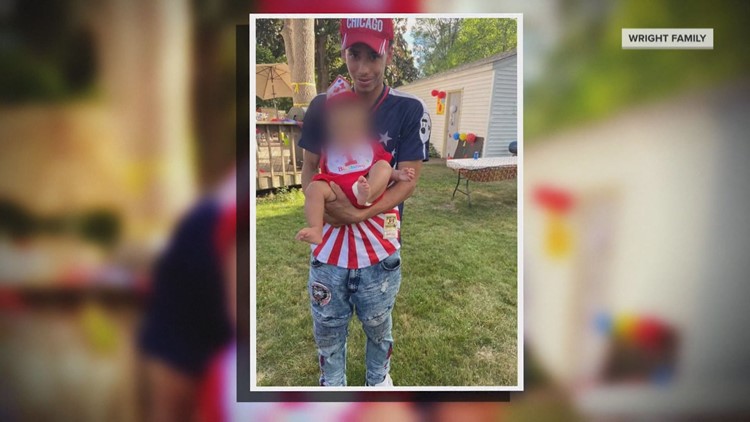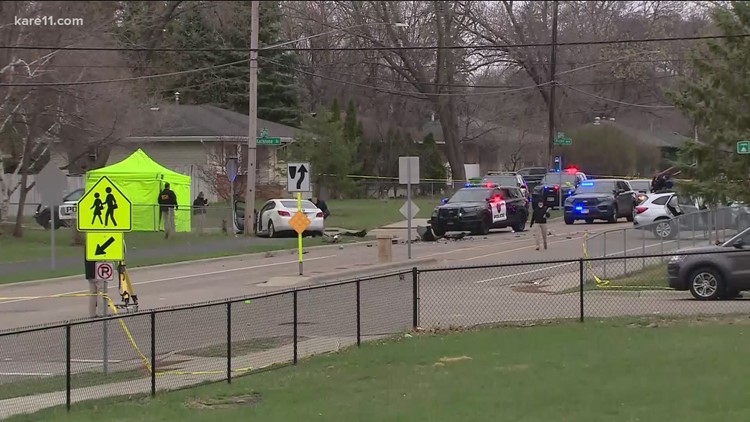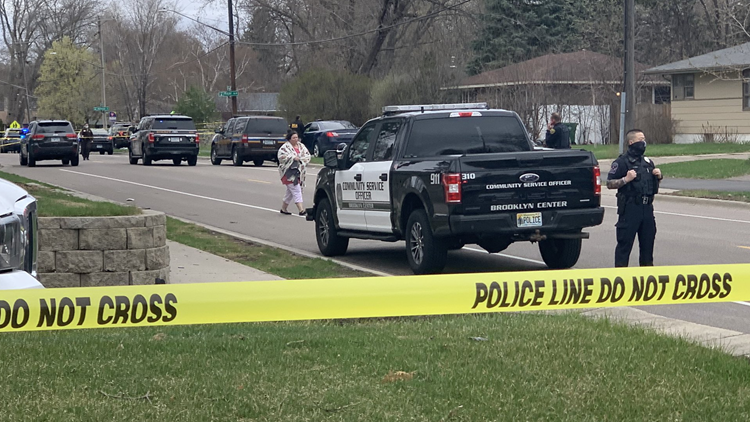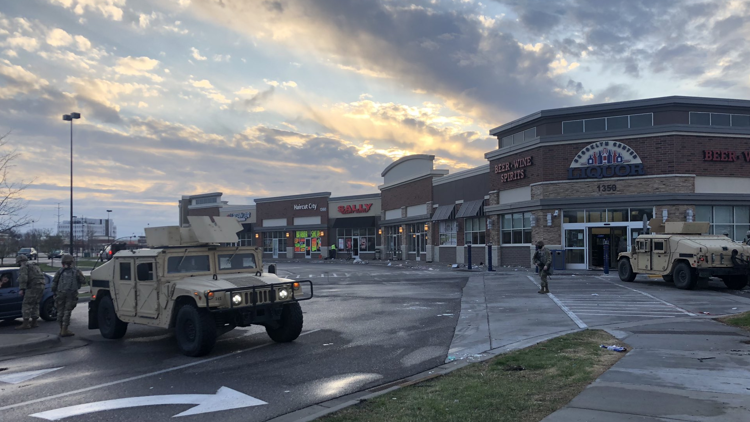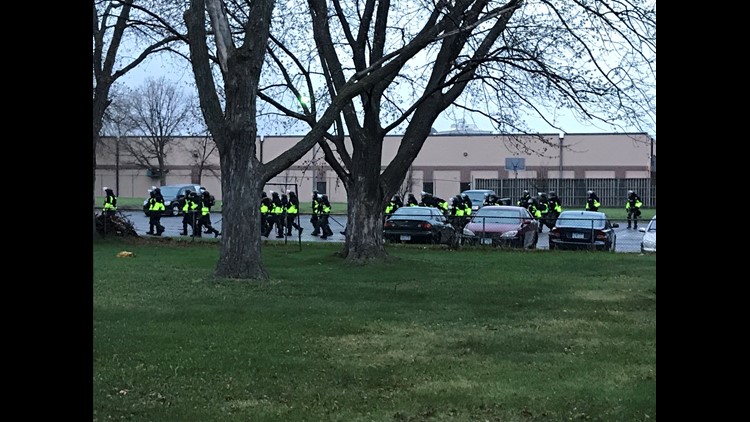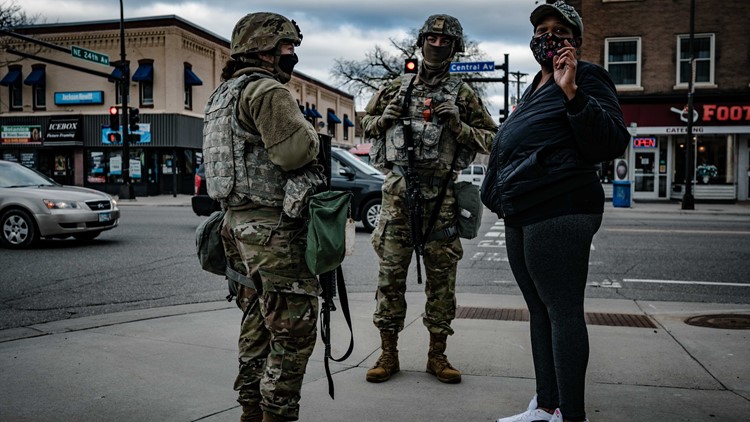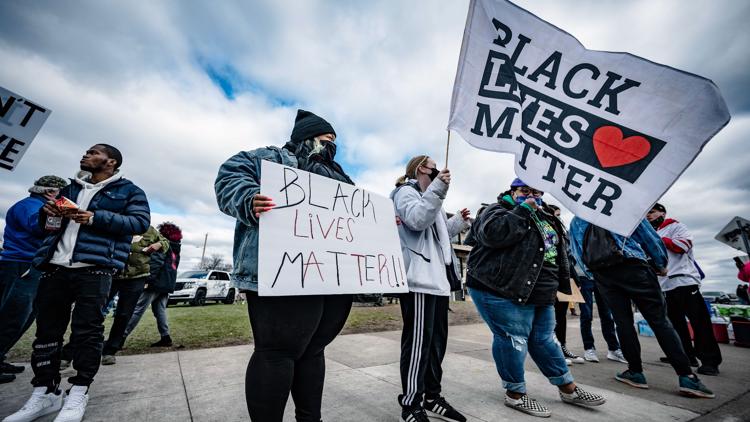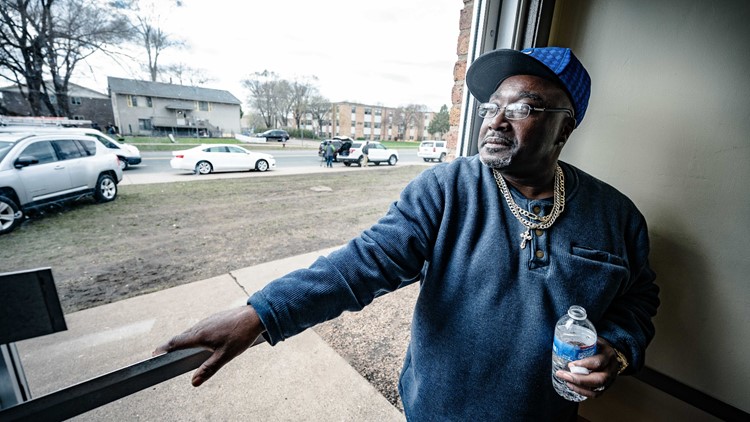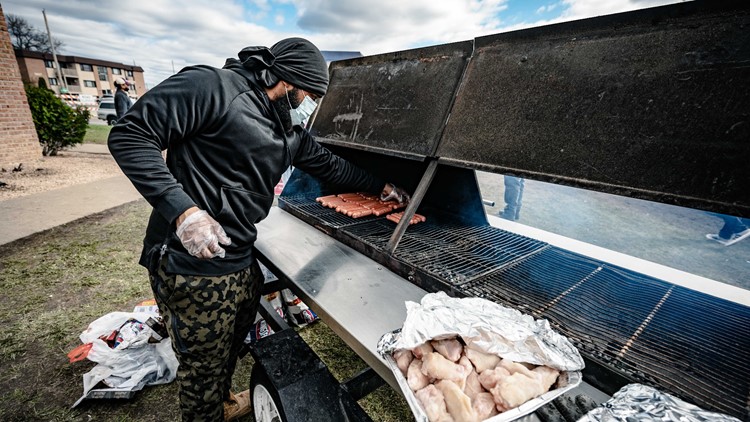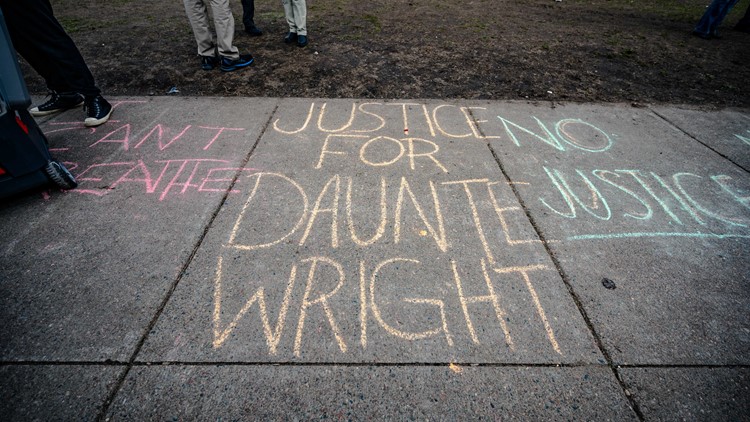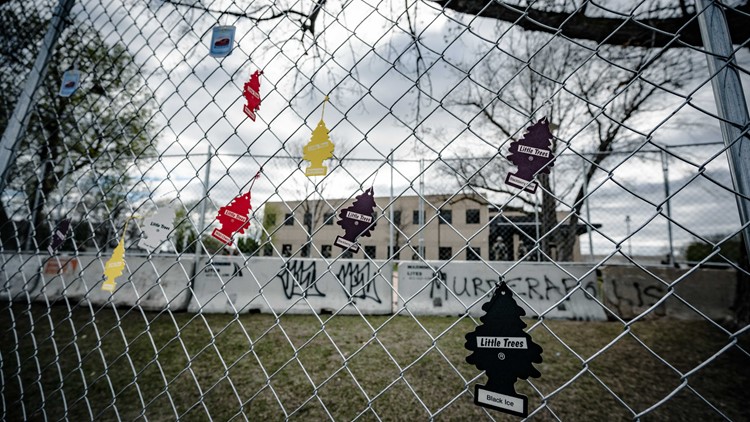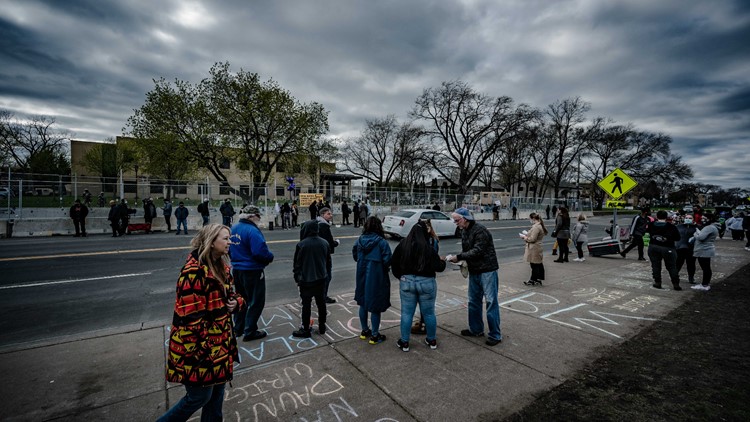BROOKLYN CENTER, Minn. —
- Nine total jurors selected, five women and four men. Five more are needed
- 13 total potential jurors dismissed so far
- The state has used its last peremptory strike; the defense has used two
- Kim Potter expected to testify in her own defense
Five jurors were seated on the second day of the criminal trial of Kim Potter, bringing the total number of approved jurors to nine. Five more are needed before the trial can begin with opening statements.
Potter is charged with first and second-degree manslaughter in the April 2021 shooting death of Daunte Wright.
The first potential juror who appeared Wednesday morning, number 17, was quickly passed through by both the defense and prosecution. The panelist, a white woman who recently graduated from school and is currently working full time, was the fifth juror to be seated.
The sixth juror to be seated for trial, juror 19, appeared before the court about 15 minutes later. Juror 19, a Black woman, teacher and mother of two, revealed she owns a Taser and carries it for protection but has never used it. She also told the court she has a permit to carry a firearm. Both the state and defense passed through juror 19.
Juror number 21, a white, married man and father of two, sat for questioning around 11 a.m. He told the defense he had seen the video of Wright’s death multiple times, but stopped following the case after he was summoned for jury duty. After a brief line of questioning from the prosecution, both the defense and state passed juror number 21, making him the seventh juror seated for trial.
A white man who has works as a registered nurse, juror number 22, was then passed through by both the state and defense, making him the eighth juror to be seated. He told the courtroom that he trusts police “until proven otherwise,” and he considers himself a responsible gun owner.
The ninth and final juror to be seated on the second day of jury selection, was juror 26, an Asian woman. She told the court the place she worked was damaged during protests and that made her angry and upset. She admitted that she didn’t want to serve on jury duty, but would as part of her civic duty. Both the state and defense passed through juror 26.
The prosecution has used the last of its peremptory strikes, while the defense is left with three. Jury selection resumes Thursday morning.
WEDNESDAY, DEC. 1
4:11 p.m.
The second day of jury selection concluded with juror number 32, a woman who said she used to work as a security guard at her church, and owns a firearm.
In her questionnaire, she said she has a "very unfavorable" view of Black Lives Matter, telling Chu "they just go too far overboard." She also said she has concerns about coming into Minneapolis for the trial "because of all the violence that's been going on." Also stated in her questionnaire, she said she "strongly agrees" that she trusts police and they make her feel safe, but said she would not be biased and "make a fair decision" should she be seated as a juror.
The prosecution used its last peremptory strike, and juror number 32 was dismissed.
3:45 p.m.
After an afternoon break, jury selection continued with juror number 30, a pregnant woman who lives on the southside of Minneapolis. She told Judge Regina Chu that she regularly experiences nausea and vomiting in connection to her pregnancy and has been hospitalized several times. The juror told the court an uncle of hers was Tased in the past, but had been experiencing some mental health issues at the time and she believes police used the Taser “for his own safety.” After a discussion with the defense and prosecution, Judge Chu granted the defense's motion to strike the juror and excused her from service because of her pregnancy-related illness.
2:40 p.m.
Juror 28, a white man who works in manufacturing, called Daunte Wright’s death “most unfortunate” in his pretrial questionnaire. He feels strongly that law enforcement in his community makes him feel safe and opposes defunding the police. The juror told state prosecutor Matthew Frank he hasn’t seen evidence that police treat Black and white people differently, but agreed that race doesn’t matter when evaluating evidence in a courtroom. Despite being extremely busy with work, the juror told both the defense and prosecution that he could commit to serving on the jury in this case. The juror was passed through by the defense, but the state used another one of its peremptory strikes, meaning juror 28 will not not hear the trial. So far, the defense and prosecution have each used two peremptory strikes.
2:20 p.m.
Juror 26, an Asian woman according to pool reporter notes, told the courtroom that a place where she worked was damaged during protests, which made her angry and upset. She also said that she doesn’t want to serve as a juror but would be willing to do so anyway because of her civic duty. The juror explained to the court that she has final exams and job interviews coming up that would interfere with the timing of the trial. When asked by state prosecutor Matthew Frank if she had concerns that the verdict would impact her personal relationships, the juror admitted that she had some concerns. Both the defense and state passed through juror 26, making her the ninth person seated for the trial.
2 p.m.
After a break for lunch, jury selection resumed Wednesday afternoon with juror 25, a woman. The juror, a white woman, wrote in her questionnaire that she believed Daunte Wright should not have been killed and that Kim Potter shouldn’t have pulled her firearm. When asked by defense attorney Earl Gray if she had any bias that would support Daunte Wright or other people killed by police, the juror said yes. Judge Regina Chu granted the defense’s request to dismiss the juror because of that answer.
11:50 a.m.
Potential juror 23 was excused without questions from the defense or prosecution because of a language barrier.
11:20 a.m.
Juror number 22 is a white man who has worked as a registered nurse for more than 25 years. The juror told Judge Regina Chu that his wife used to work for the public defender's office in Hennepin County decades ago, but said that wouldn't affect his ability to be fair for both sides. Juror 22 saw video of Daunte Wright’s shooting when it was initially released, but hasn’t watched it recently. The juror explained that police in his community make him feel safe, and said he believes police departments are necessary. During questioning from state attorney Matthew Frank, the juror said he owns a gun for duck hunting and considers himself to be a responsible gun owner. Both the defense and state passed the juror, making him the eighth panelist selected.
11 a.m.
After taking a short break, jury selection resumed with juror number 21, a white man. A married father of young children, the juror told the courtroom he had served on a jury for a criminal case about protesters trespassing about 10 years ago. Juror 21 told defense attorney Earl Gray that he had seen the video of Daunte Wright’s death multiple times but stopped reading about the case after being summoned for jury duty. The defense passed through juror 21 after discussing what he describes as “neutral” feelings toward Blue Lives Matter. The state also approved juror 21 to serve in the trial after asking several brief questions. The total number of jurors seated is now seven.
10:20 a.m.
The third potential juror questioned Wednesday, juror number 20, was a white man and father of three small children who called Potter’s actions on the day of Daunte Wright’s death a “very stupid mistake” based on his own “uninformed opinion.” Defense attorney Earl Gray asked the juror several questions about his opinions on police and brought up the juror’s questionnaire response where he wrote he believed minorities are sometimes treated differently by the justice system. Juror 20 said despite the fact that the case involves a Black man and white woman, he could be a fair panelist. The defense used its second peremptory strike on juror 20, excluding him from the jury.
9:15 a.m.
Juror 19 is a teacher and mother of two who said she saw video of Daunte Wright’s shooting about four to five times on the news, but told the court she didn’t watch the video online or search for details about the case. She described the video as chaotic and said she saw damage from the unrest in the area where she lived. Juror 19, a Black woman, said she owns a Taser and carries it for protection, but has never used it. During questioning by the state, the juror also said she has a permit to carry a gun. Both the defense and state passed through juror 19, making her the sixth person seated for Kim Potter’s trial.
9 a.m.
The first potential juror interviewed on Wednesday morning, Juror 17, was quickly passed through by the defense after a few generic questions about their ability to be impartial and fair. The juror is a white woman who recently graduated from school and is working full time. During questioning by the state, Juror 17 said she believes police officers will always be needed because “bad things happen.” The state also passed through Juror 17, making her the fifth juror to be seated for the trial.
Kim Potter Trial: Who's who in the courtroom
Tuesday
On Tuesday the prosecution and defense in the trial of former Brooklyn Center police officer Kim Potter agreed on four people to the sit on the jury.
Potter faces both first and second-degree manslaughter charges in the April 2021 shooting death of Daunte Wright.
Two of the selected jurors were white men, one was a white woman and one was an Asian woman.
The first juror was selected was a man who works as an editor in neurology dealing with medical evidence.
The second juror seated Tuesday told the courtroom she's a retired teacher. The juror reiterated that she would be able to be an impartial juror and take the evidence presented by both sides into consideration, but she noted she’s concerned about seeing graphic images and videos during the trial.
A third juror was a 29-year-old man who works as an operations manager for a retail company. He expressed that he's slightly distrustful of police officers, but said he would still contact them if he needed help.
The forth and final juror seated on Tuesday was a woman who works in Minneapolis and said she could hear bullets from inside her home during last year’s unrest in Minneapolis, but didn’t associate any specific group with the violence. She also said she believes police are there to keep order.
The state and defense each used one peremptory strike on the first day of jury selection, leaving the prosecution with two and the defense team with four.

